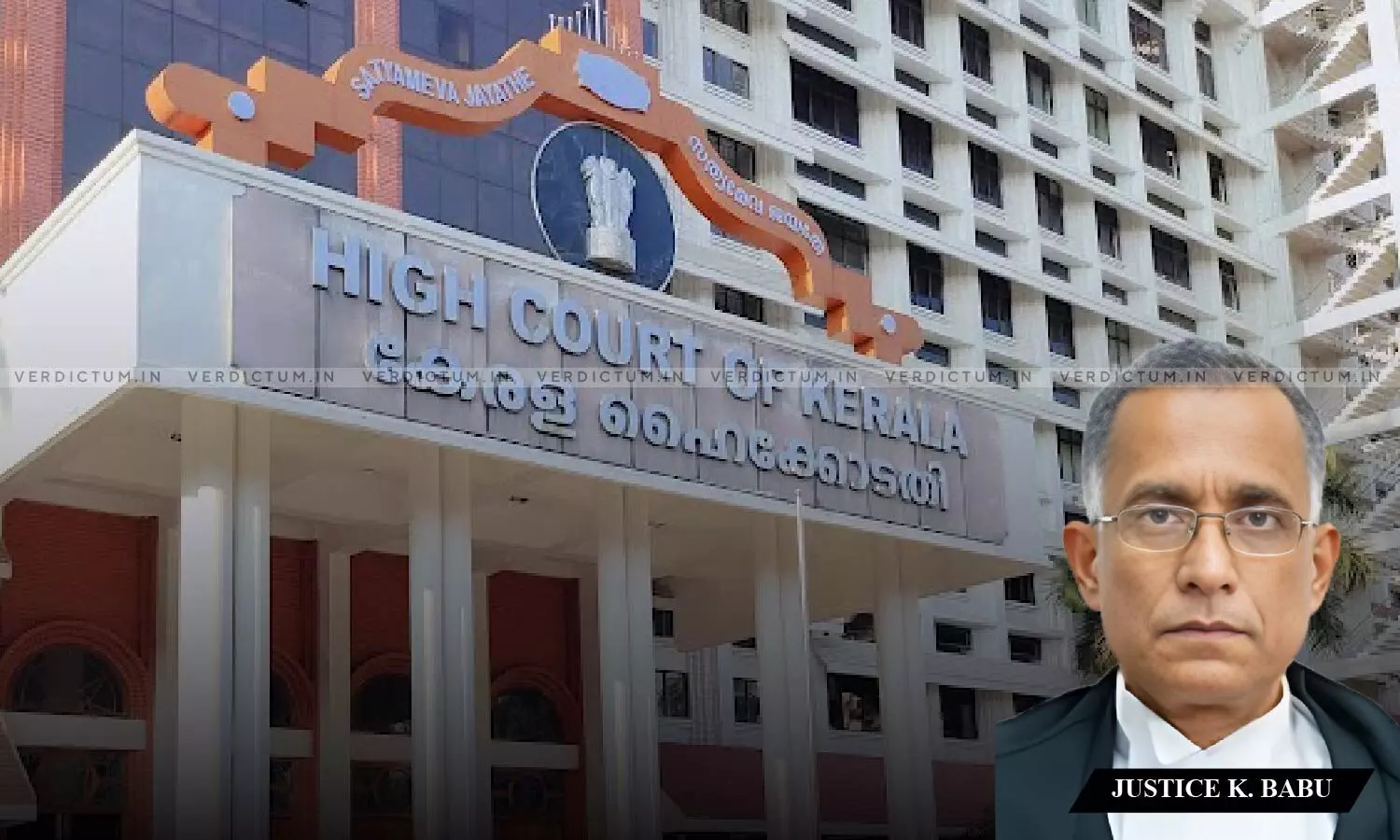
BNSS Provisions Must Be Extended Retrospectively In Cases Where Accused Is Affected By An 'Intellectual Disability': Kerala HC
 |
|The Kerala High Court held that the provisions of the Bharatiya Nagarik Suraksha Sanhita,2023, must be extended retrospectively in cases where the accused person is affected by an "intellectual disability".
The Court noted that while the CrPC protects those of "unsound mind" or with "mental retardation," the Sanhita extends protection to those suffering from "intellectual disability," a broader category that includes Alzheimer’s dementia.
The Bench of Justice K Babu observed that, "It is the right of the accused to have a fair trial as provided under Article 21 of the Constitution, which is sacrosanct of criminal jurisprudence. Therefore, if the provisions of the Sanhita are not extended retrospectively in cases where the accused person is affected by any intellectual disability of such a degree that renders him incapable of making his defence, there would be a failure of fair trial."
In this case, the petitioner, a 74-year-old man, was facing charges under the Prevention of Corruption Act in a case pending since 2011. He was diagnosed with Alzheimer’s Dementia by a neurologist and, through his lawyer, filed an application under Section 329 of the Criminal Procedure Code in February 2023.
The petitioner argued that his illness made him incapable of defending himself in the trial. The trial court interacted with the petitioner and initially found no signs of unsoundness of mind. However, the Court still ordered further medical evaluation. Doctors confirmed that the petitioner was suffering from severe dementia and recommended further assessment by a psychiatrist. They also noted that the petitioner required a caretaker for his daily needs.
The Special Judge, after considering the medical report, instructed that the petitioner be examined at the Mental Health Centre for a detailed evaluation, if requested by the petitioner.
The petitioner’s counsel argued that due to his illness, he could not properly instruct his defense, and requested the Court to follow the procedures under Chapter XXV of the Cr.P.C. for mentally incapacitated accused persons.
The Court held that the fundamental difference between the provisions of the Code of Criminal Procedure (CrPC) and the Bharatiya Nagarik Suraksha Sanhita (Sanhita) lies in their approach to mental incapacity. While the CrPC protects those of "unsound mind" or with "mental retardation," the Sanhita extends protection to those suffering from "intellectual disability," a broader category that includes Alzheimer’s dementia.
The Court emphasized that a person suffering from severe dementia, such as Alzheimer’s, which renders them incapable of making their defense, is entitled to the protections provided under Chapter XXV of the CrPC and Chapter XXVII of the Sanhita. It highlighted that the right to a fair trial is guaranteed by Article 21 of the Constitution, and this right extends to ensuring that accused individuals with mental disabilities can effectively participate in their defense.
The Court also noted that denying such protection would violate the principle of equal protection under Article 14 of the Constitution. It stated, “Where two persons suffering from a mental disability or intellectual disability are dealt with differently, one under the Code, and the other under the Sanhita, it amounts to a violation of Article 14 of the Constitution.”
Regarding the present case, the Court found that the petitioner, suffering from severe dementia, required a detailed psychiatric assessment, and the Special Judge had failed in his duty to assess the petitioner’s mental disability. The Court concluded that the impugned order was "patently illegal and irregular," and set it aside, directing the Special Judge to reconsider the application under Chapter XXVII of the Sanhita.
Cause Title: VI Thankappan vs State of Kerala & Anr. (Neutral Citation: 2024:KER:67342)
Click here to read/download the Judgment